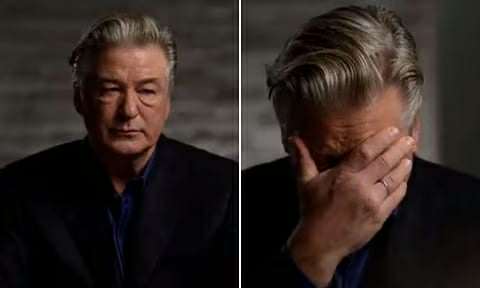As the dust settles around the announcement, Baldwin’s casting in The Silent Capitol is already being framed as something far more substantial than just another Hollywood role—it is being treated like a public referendum on redemption, accountability, and the brutally unforgiving nature of collective memory in the digital age. The news cycle hasn’t simply reported his involvement; it has latched onto it, dissecting every angle, every implication, and every shadow cast by Baldwin’s recent past. Commentators, industry analysts, and critics alike are questioning not just whether he can portray a disgraced senator fighting to clear his name, but whether he can withstand the inevitable comparisons to his own very real struggle for narrative control. The casting feels less like a career decision and more like an audacious gamble, one that places Baldwin directly under a spotlight that reveals as much as it illuminates.
Under David Fincher’s exacting, almost surgical approach to filmmaking, Baldwin won’t be allowed to hide behind performance. Fincher is known for stripping actors down to their most vulnerable edges, and in this context, every line, every gesture, every flicker of discomfort captured on camera will carry symbolic weight. And with Aaron Sorkin providing rapid-fire dialogue that forces moral ambiguity into the open, Baldwin’s character—a senator clawing his way back from scandal—becomes a near perfect mirror to the actor himself. It’s a role that demands confession while pretending to be fiction, one that asks Baldwin to walk the razor’s edge between craft and catharsis. The global audience watching won’t simply observe; they will interpret, compare, and judge, frame by frame, moment by moment.
If The Silent Capitol delivers on the enormous promise implied by this creative pairing, it could become a watershed moment—not only for Baldwin’s career trajectory, but for Hollywood’s broader relationship with scandal, forgiveness, and the possibility of reinvention. The industry has long grappled with how to handle figures who fall from grace, oscillating between condemnation and selective amnesia. Baldwin’s role might force the conversation into new territory, challenging assumptions about who deserves a comeback and what a comeback even means in a world where the internet never forgets. It may push studios to reevaluate whether art can still serve as a vehicle for personal redemption, or whether the line between performance and public penitence has become permanently blurred.
Meanwhile, the rest of the production remains wrapped in deliberate secrecy. The supporting cast, normally announced with fanfare, is being kept under tight wraps, fueling speculation about whether other bold casting choices are on the horizon. Fincher’s habit of running closed sets has only amplified the mystique, giving the impression that the film is being constructed behind a curtain not just to build hype, but to prevent external narratives from distorting its vision before it’s fully formed. Insiders describe the atmosphere around the project as “electrified,” “tense,” and “historically careful,” a sign that everyone involved understands the stakes of what they’re making.
One thing, however, is already beyond dispute: when The Silent Capitol finally hits theaters, it won’t simply be watched. It will be scrutinized with the intensity of a cultural event. It will be dissected by critics, debated across social media, analyzed in think pieces, and replayed in endless clips that draw connections between Baldwin’s on-screen persona and his off-screen life. Whether it becomes a triumph, a controversy, or something in between, it is guaranteed to be remembered—not just as a film, but as a moment when art, reputation, and public judgment collided in real time.
